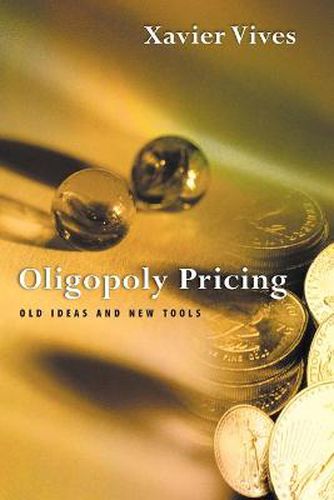Readings Newsletter
Become a Readings Member to make your shopping experience even easier.
Sign in or sign up for free!
You’re not far away from qualifying for FREE standard shipping within Australia
You’ve qualified for FREE standard shipping within Australia
The cart is loading…






The oligopoly problem –the question of how prices are formed when the market contains only a few competitors–is one of the more persistent problems in the history of economic thought. In this book Xavier Vives applies a modern game-theoretic approach to develop a theory of oligopoly pricing.Vives begins by relating classic contributions to the field–including those of Cournot, Bertrand, Edgeworth, Chamberlin, and Robinson–to modern game theory. In his discussion of basic game-theoretic tools and equilibrium, he pays particular attention to recent developments in the theory of supermodular games. The middle section of the book, an in-depth treatment of classic static models, provides specialized existence results, characterizations of equilibria, extensions to large markets, and an analysis of comparative statics with a view toward applied work. The final chapters examine commitment issues, entry, information transmission, and collusion using a variety of tools: two-stage games, the modeling of competition under asymmetric information and mechanism design theory, and the theory of repeated and dynamic games, including Markov perfect equilibrium and differential games.
$9.00 standard shipping within Australia
FREE standard shipping within Australia for orders over $100.00
Express & International shipping calculated at checkout
The oligopoly problem –the question of how prices are formed when the market contains only a few competitors–is one of the more persistent problems in the history of economic thought. In this book Xavier Vives applies a modern game-theoretic approach to develop a theory of oligopoly pricing.Vives begins by relating classic contributions to the field–including those of Cournot, Bertrand, Edgeworth, Chamberlin, and Robinson–to modern game theory. In his discussion of basic game-theoretic tools and equilibrium, he pays particular attention to recent developments in the theory of supermodular games. The middle section of the book, an in-depth treatment of classic static models, provides specialized existence results, characterizations of equilibria, extensions to large markets, and an analysis of comparative statics with a view toward applied work. The final chapters examine commitment issues, entry, information transmission, and collusion using a variety of tools: two-stage games, the modeling of competition under asymmetric information and mechanism design theory, and the theory of repeated and dynamic games, including Markov perfect equilibrium and differential games.